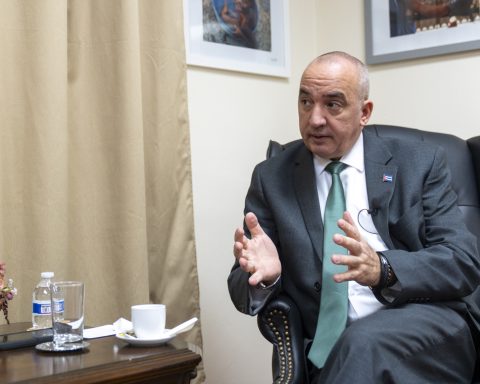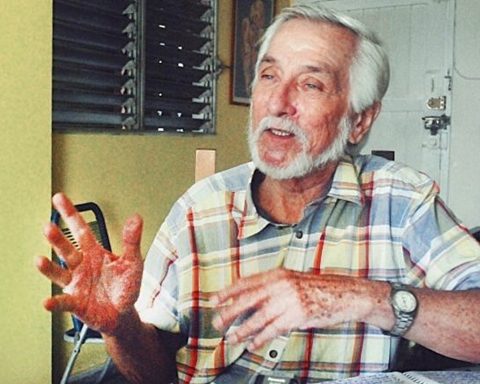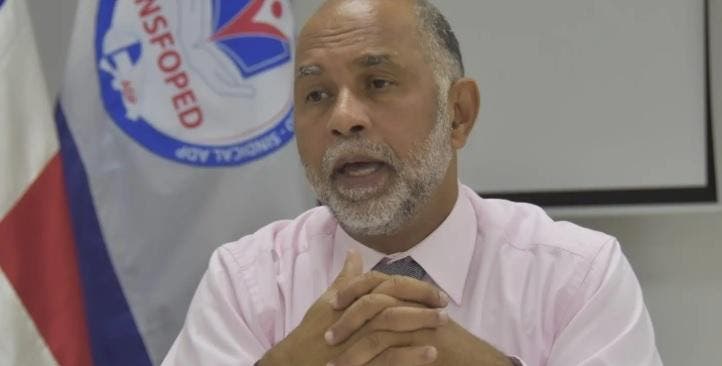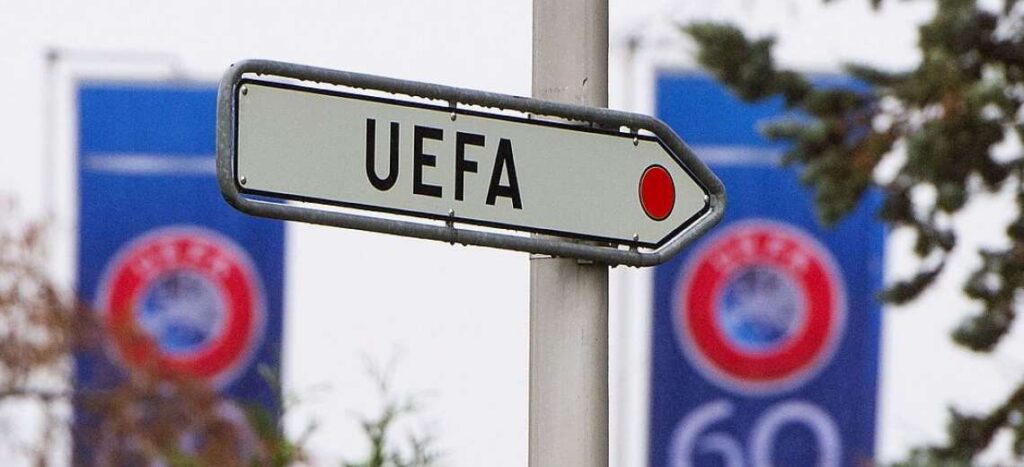MIAMI, United States.- The obituaries and eulogies that are now being released regarding the death of the essayist and screenwriter Ambrosio Fornet, must be the last memories of his life that are shared publicly before dissipating into oblivion, as has happened with so many other intellectuals who put their intelligence at the service of a long-lived and decrepit dictatorship.
The comment that hurts him the most posthumously belongs to Miguel Díaz-Canel, who must have consulted with his ideologues about Fornet’s absolute fidelity until the last moments of his almost ninety years, to lament his disappearance with a phrase abundant in pompous and unreal adjectives : “A great intellectual, with roots in Bayamese and universal projection, has died, a profound, sensitive, visceral, very Cuban essayist. Over gray years, he put lights that outlive him. We are going to miss Ambrosio Fornet a lot. My condolences to #Cuba.”
In the shadowy environment of the attention that the political police gave from early on to matters of culture, the shrewd essayist ended up paying attention to the so-called Cuban diaspora in the United States, a terminology that eluded the mention of exile.
The writer Uva de Aragón has published memories of friendship referring to the writer. I choose one that, paradoxically, expresses Fornet’s revolutionary commitment when making his processed files on Cuban literature in the so-called American “community”:
“Fornet published in La Gaceta a dossier on Cuban poetry written abroad, and in a footnote he explained that it was not possible for him to include my verses because of my ‘militant nostalgia.’ The phrase until these days makes me laugh. I see myself with a sign with the word “nostalgia” pecking somewhere. I also confess that I was flattered that I had to justify my absence from those pages.
It turns out then that that gentleman, a good, decent person, who smoked a pipe in the British style, was also a kind of guardian of Castro’s ideological parameters, incompatible with the most consistent and militant stratum of Cuban culture in exile.
Like many other of his congeners, Fornet lived in fear of being wrong about his huge ideological tasks, where he used to confuse dictatorship with nation.
At the beginning of his revolutionary career, when he believed that Creole socialism was different from that of Europe, he worked in the editorial area together with Alejo Carpentier, who early glimpsed the impossibility of living in that trap and ended his days in Paris, at the service of the regime. .
Fornet is credited with creating the Cocuyo collection at Editorial Arte y Literatura, which began with A Day in the Life of Iván Denísovich, by Alexander Solzhenitsyn, about the horrors of Stalinism. Some of the most important writers from Western Europe, the United States, Asia, and Africa were published there.
Then the prohibitions linked to the geopolitical interests of Fidel Castro began, and he opportunistically moved his camp of operations to other sectors of culture.
It was at the Cuban Book Institute, years later, that the architect Rafael Almeida, an incompetent person who Armando Hart had in charge of publishing operations at the Ministry of Culture, customarily humiliated Fornet, who had written a substantial history of the Cuban book that it was not published by decision of the aforementioned bureaucrat.
Something revealed by Fornet, which did not exactly coincide with the official story, caused the censorship of his investigation. The essayist, however, remained silent and obedient for years in the face of the arbitrary decision, waiting for the book to finally appear in 1994.
Ambrosio Fornet avoided all the difficult moments that many of his relatives suffered, and he does not seem to have helped them from his privileged position when they fell from grace.
He circumscribed the usual repression of the dictatorship to a five-year period that he described as gray, as if the rest had been a beautiful rainbow.
He intervened in favor of the regime in the so-called “email war”, in 2007, when a part of the intelligentsia tried to protest the television rescue of an implacable inquisitor, Luis Pavón.
Iroel Sánchez, among the most cunning commissioners of Castroism, has written how Fornet defended him on a certain occasion, threateningly, when an “opportunist” author criticized him: “So-and-so, how is that you said?”
Fornet was a member of important literary and cinematographic juries on the island, where the final decisions are usually in the hands of State Security.
He has just died on the wrong side of the disputed Cuban freedom. In a few days he will only be remembered by his family. Like Alfredo Guevara or Roberto Fernández Retamar, he is another Castro myth in bankruptcy, at the service of a lost cause.
OPINION ARTICLE
The opinions expressed in this article are the sole responsibility of the issuer and do not necessarily represent the opinion of CubaNet.
Receive information from CubaNet on your cell phone through WhatsApp. Send us a message with the word “CUBA” on the phone +1 (786) 316-2072, You can also subscribe to our electronic newsletter by giving click here.


















